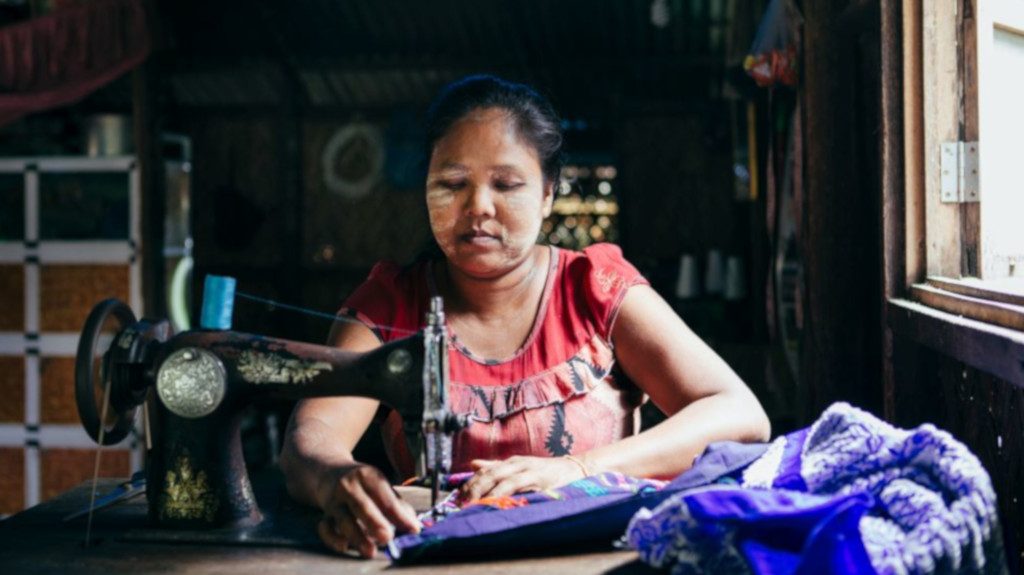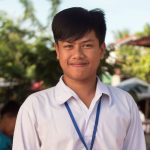
Asia
In Asia the volume of FCA’s staff was 34 and the main partners were LFW, Metta Development Foundation, Life with Dignity, Solve and Federation of Women’s Entrepreneurs’ Association of Nepal

In Asia the volume of FCA’s staff was 34 and the main partners were LFW, Metta Development Foundation, Life with Dignity, Solve and Federation of Women’s Entrepreneurs’ Association of Nepal

” Other teachers teach you their various subjects, but a career counsellor teaches you how to set goals, use your time sensibly and select subjects that are suitable for you. The career counsellor also gets you to think what you like to do in the future. Career couselling has taught me to work towards my goal, but also make decisions. Others do not decide for me”
Angkeriya Oeurn, secondary school learner,
Cambodia
In MYANMAR, improving the socio-economic status of women is central to our work. Through support provided by UN Women and FCA, women’s livelihood opportunities increased in Rakhine State, which has been affected by conflict.
We improved the economic position of women by giving weavers and handicraft makers vocational and business skills training, as well as support for financing and accessing the markets. A total of 300 women participated in this training. The voice of women was made more audible by bringing together female entrepreneurs and enterprises and administrative and civil society representatives.
The livelihood work supported by Women’s Bank expanded to Kayin State. A total of 125 women participated in training and making a business plan and 105 of them received support for developing their livelihoods.
In northern Shan State, we supported education in 20 refugee camps, for instance, by distributing study materials to 1 792 students and by recruiting 21 teachers. The parents of the students found that the children benefited from the education support.
In the Taunggyi area, a new vocational education and training project began for youth who had dropped out of school. In the first year of the project, 29 youth participated in this education and training. In addition to education and training, the project engages in advocacy work for the improvement of youth employment opportunities. Local operators are encouraged to offer jobs and traineeships. Additionally, we disseminate information about employee rights and children’s rights, among other things.
A new student counselling project began at the monastery schools situated in the Yangon and Taunggyi areas. The project aims, for instance, to develop career counselling plans and information materials.
In Myanmar, we also arranged four interfaith workshops aiming to promote mutual understanding and respect among different religions. A total of 66 religious leaders representing a variety of religions and areas participated in these workshops.
In NEPAL, we improved the livelihood and employment opportunities of the most disadvantaged people with support for registering 12 cooperatives led by women and establishing 69 small enterprises. Providing existing businesses with support for development and for raising their goals was one of the key objectives as well. This has been of significant benefit to groups, such as former bonded labourers who otherwise encounter serious difficulties in finding employment and who previously had to leave their families and communities to seek work abroad.
During 2018, FCA supported the education of 27 101 children and young people from early childhood education to the secondary level, for instance, by granting scholarships and providing school supplies. The reconstruction project following the disastrous flood of 2017 came to an end. The project had involved building or repairing the toilets and improving the availability of drinking water at 83 schools. A total of 1 786 students received vocational education and training. Of these students, 83% were women. We also completed new career counselling material for vocational education and training.
FCA continued its advocacy work for the implementation of the rights of former bonded labourers and Dalits (casteless people). In five provinces, it provided support to human rights actors who are engaged in efforts for the elimination of discrimination. FCA arranged events and dialogues on the rights of casteless people on the local, regional and national levels and promoted the enforcement of laws for the elimination of discrimination.
This advocacy work also brought results with regard to improving the status of former bonded labourers. Based on an initiative by FCA and one of its partner organisations, 1 700 freed Kamaiyas (former bonded labourers) received support for reconstructing their homes while 52 individuals received their certificates of land ownership and 440 others received their identity cards.
In CAMBODIA, career counselling expanded to technical secondary schools and counselling was provided at 28 schools. Career counsellors provided classroom counselling to 8 290 students (54% girls) and personal counselling to 1 000 students (53% girls).
We engaged the schools and the job markets in cooperation by arranging a two-day career fair in Battambang. The fair attracted more than 4 000 visitors of which 900 were secondary school students. The students became acquainted with 55 social enterprises and private businesses, as well as the activities of educational institutions. They also participated in workshops where they learned to identify their strengths and make educational and career choices.
The impacts of climate change are clearly evident in Cambodia and we have begun adjusting to these. Together with a humanitarian assistance volunteer of the EU, we conducted an analysis of how risks and disasters, such as poverty and climate change, experienced by Cambodians affect farmers and women in particular.
We arranged 21 courses on water-saving irrigation. A total of 365 farmers participated in this training. In the Pursat area, we provided four water basins for irrigation and domestic use to meet the acute shortage of water. The water basins benefited 340 people. Additionally, we distributed 135 water tanks for collecting rainwater and 91 solar panels.
The Cambodian Changemaker Network for youth engaged in a diverse range of work for the inclusion of youth in civic activity. A total of 105 young people received support and information on volunteer work and leadership.
The Network supported the young people with small scholarships to carry out different activities in their communities. They learned useful skills related to event organisation and volunteer activation. As a result, the communities gained new, active volunteers to conduct grass-roots development work.
Four representatives of the Cambodian Changemaker Network together with volunteers from the Teachers without Borders network participated in the Asian Youth Forum organised by by the Asian Development Bank in South Korea.